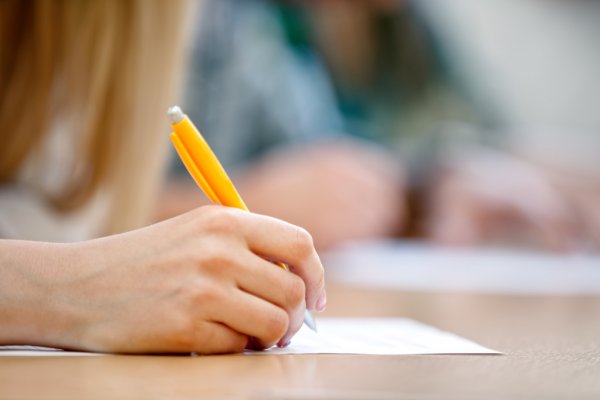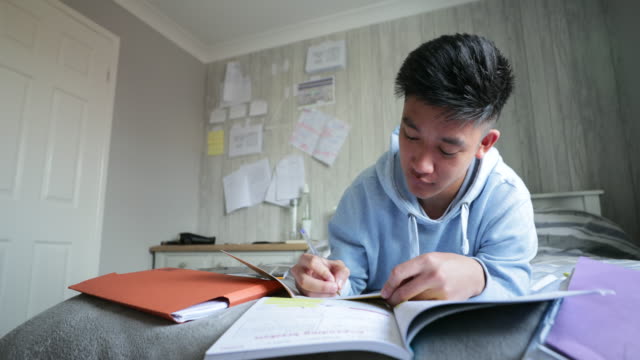
Are you a student who’s looking for ways to study smarter? Look no further.
When studying smart for better grades in their exams, most students apply the same practices. You find them bent over different books, highlighting passages while others write down notes with their pens. The question most people would ask is what differentiates top-performing students from those who don’t?
We will outline some of the best strategies for studying smart and explain how adopting them can help you improve your grades.
1. Prepare Well for Exams

We are all guilty of procrastinating at times. However, waiting for Sunday night to study for Monday’s exam isn’t fun at all! It will also diminish the chances of giving your best. One of the best ways to ensure that doesn’t happen is by applying effective study tips.
Find a calendar or a planner to help you structure and plan your test assignment due dates to avoid missing anything. Afterward, you can plan how much studying you can comfortably manage after school, including allocating time for each topic.
If you participate in extracurricular activities, learn how to manage your time. Have a plan of what needs to be done first and when you can finish it. Organize your activities so that important things don’t come last. You can have a weekly or monthly plan, which you must adhere to strictly.
When scheduling your calendar, allocate more time for studying and less time for extracurricular activities, especially during exam periods!
2. Use Various Learning Strategies

Everyone has different learning styles; therefore, there are plenty of ways to learn and study. There’s no formula to the right or wrong way of learning, which is why each individual learns differently.
To study smarter, you can make things livelier by using the following list of study techniques.
Reading and writing learners
- Go through your notes as many times as possible and paraphrase where necessary.
- Jot down explanations for important ideas and concepts
- Have post-it notes in your room
Visual learners (seeing)
- Use colored pens to underline or highlight key points
- Create visual aids such as flashcards, flowcharts, graphs, and maps
- Watch videos related to your area of study
Hands-on learners (kinesthetic)
- Use a standing or walking desk while studying
- Have a fidget toy when you’re studying
- Make small steps, including tapping your feet to a rhythm or walking around as you study
Hearing/auditory learners
- Study with classmates or friends so that you can participate in discussions
- Read notes aloud.
- Listen to a previously recorded lesson as you revise.
3. Write Good Notes to Make it Easy When Studying

Good note-taking is all about how you structure your notes. Of course, it will be a bonus if you are able to write neatly. Many students also use different coloured pens to emphasize important points to make them stand out.
One of the best ways to remember what the teacher taught in class is to take good notes. Having well-organized notes will help you understand a topic better and develop meaningful learning skills.
Well organized notes in class improve your understanding and memory because it means:
- You listened actively to what the teacher said
- Think about what you are writing down
- You make connections between topics
- You have the best review tool for notes after school
Many students swear by these effective note-taking techniques because they easily remember most concepts during exams.
4. Test yourself

When you feel confident about a certain topic, test yourself to see if you understood all concepts well enough. The best way to go about this is by using past exam papers or assessment books.
You can practice using questions that are the same as those you’ll encounter in the main examination.
5. Get Enough Rest During the Night
It’s the night before the day of exams. You have applied all the techniques on how to study effectively for exams. But suddenly, you cannot remember simple things. Don’t fret!
It’s common for students to stay up the night before exams, so, get a good night’s sleep because enough sleep will help you remember most things on the day of exams. Lack of sleep affects your logical reasoning, creativity, and memory.
On the other hand, students who have prepared well for exams and slept well will find that they are able to focus better which will help in getting good grades.
6. Ask for Help

Studying effectively becomes impossible when you don’t understand the material in front of you.
Always consult with your teacher when you don’t understand a certain topic. Reading through your notes will help you to know how much you’ve grasped. Does anything you’ve written make sense? If it doesn’t, ask your teacher to go through it with you.
If you’re still experiencing difficulty in a specific area, you can engage the services of a tutor from our home tuition agency. A tutor is well equipped with the subject’s knowledge, and they will be able to help you understand your areas of difficulty.
Some benefits of private tuition include:
- Learn at your own pace
- You get personalized lessons
- You can choose your tutor
- It’s convenient because you learn from anywhere
- You learn subjects out of the syllabus
7. Divide Study Topics

Dividing topics into portions will help when there’s so much to study. It’s also the best way to study effectively both at home and at school.
For instance, you have 10 chapters to study that you must remember. Instead of reading them all at once, break them into two, then you can go through them for five nights. Don’t worry if you can’t grasp something immediately; this is where practice comes into play. Reviewing something every day helps it to stick in the brain.
When you need to remember a list of things, develop a phrase that uses the first letter. This trick is called mnemonic.
8. Practice What You Learn

Practice is the best building block for effective learning; it facilitates recall, helps with prolonged memory retention, and speeds up learning. During class discussions or in your study groups, let everyone ask questions on various topics.
Discuss it as a group, then take turns explaining what each person learned. Be honest. In case you don’t get the answer, go back to the basics. Allow your brain to process the information.
Conclusion
Employing good studying skills will help you learn better and boost your grades in school. It will help to increase your self-esteem, competence, and confidence, but it also reduces stress about exams because students who apply smart studying skills have high memory retention.
Good luck!
